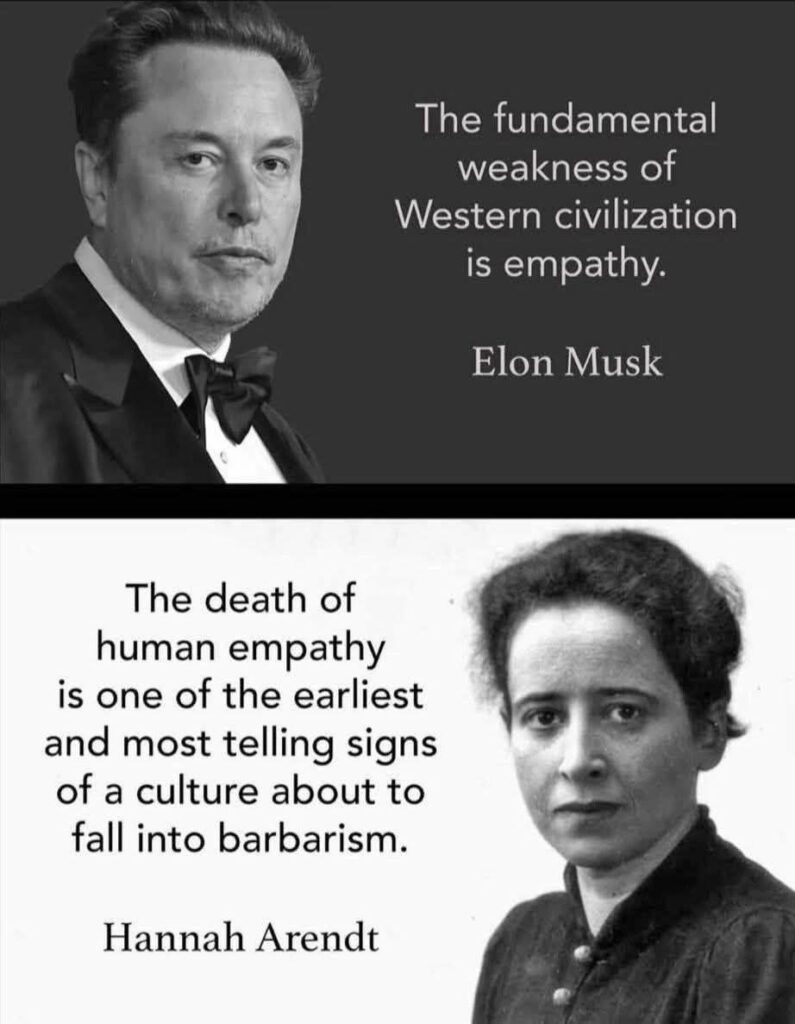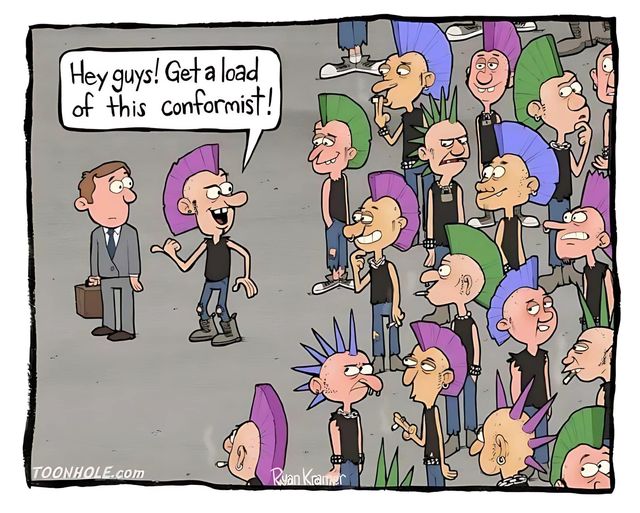We always need fast flowing counter currents, as the #mainstreaming narrows the field of imagination and excludes non-conforming ideas that could offer real solutions to systemic crises. Mainstreaming smooths the rough edges of society. It normalizes hierarchy, filters dissent, and packages politics into manageable narratives. It’s how radical demands are turned into reforms, then paperwork, then slogans, then forgotten.
Absorbing opposition into bureaucracy (e.g., NGOs, dead end consultancy)
Rewarding compromise and incrementalism, as blocking
Silencing or caricaturing grassroots resistance, as common sense
Making real alternatives seem "unrealistic", in the endThis is why active grassroots #DIY matters as a counterbalance. On this path, anarchism is not just rebellion or chaos, it is a living working tradition of thinking and organizing that keeps change alive when mainstreaming works continuously to bury it.
- Direct democracy, In a world of managed participation and elitist mediation, anarchism says: decide together, act together. It reminds us of grassroots power that doesn’t flow through institutions but grows in assemblies, co-ops, camps, and communities.
- Mutual aid and cooperation, where mainstream narratives focus on competition, profit, and security through control, anarchism champions care, solidarity, and trust-based networks, a needed cultural shift to navigate crisis and collapse.
- Decentralization of power, in the face of #dotcons, technocracy, and corporate-state collusion, anarchism is a map toward decentralization and autonomy. It’s the logic behind federated systems, commons governance, and resilient localism.
- Critique of state power, mainstreaming always ends up strengthening state structures, even when it claims to oppose them. Anarchism pulls back the curtain on the violence and coercion baked into “order”, whether in border regimes, policing, or “benevolent” welfare systems.
To make this work we need the idea of cultural compost: “We need anarchists unencumbered by anarchism.” at its best this isn’t an identity, it’s a provocation, a composting force movements from hardening into systems of control.
This is why balance is key, without radical, un-mainstreamed perspectives, the so-called “left” drifts into hollow #NGO work, tech utopianism, or sanitized liberalism. The #openweb becomes a product instead of a commons, movements become brands, justice becomes PR. Balancing #mainstreaming means, keeping the imagination alive, creating space for alternatives and building systems that don’t replicate domination
In practice, projects like the #OMN and #4opens are examples of this balance: using basic tech to empower trust, not control. They are rooted in values of rebooting the #openweb, with the cultural DNA of anarchism, without necessarily the costume. We need people unafraid to challenge power, even when everyone else says, “play nice, get the grant, follow the roadmap.” So yes, we need anarchism, not as a lifestyle, but as a counterweight, a cultural inoculation against decay, to challenge the centre from the edge.
And we need to compost the rest.

The mess we make trying to move away from the mainstream…
“Doing the same thing in the same context and expecting different results is one of the clinical definitions of insanity.” 😄This is the core of the #mainstreaming problem. Our hashtags try to name it: #stupidindividualism #deathcult #dotcons #nothingnew in that we repeat the same patterns, inside the same systems, and wonder why nothing changes.
The truth is, we’ve already solved many of these problems. From grassroots media to consensus decision-making, from tech co-ops to decentralized organizing, we had working solutions. What we lacked was a way to scale them without breaking them. That was always the sticking point. But the irony: the activist culture that once created these solutions has eroded, just as the tech finally caught up, the tech is ready, it’s the culture missing. This is the mess we’re in now.
It’s about social trust, human-scale processes, messy cooperation, and doing things differently, this time with tools that match our values, not burying them. Let’s stop acting insane, let’s try something new, but built from something old.




